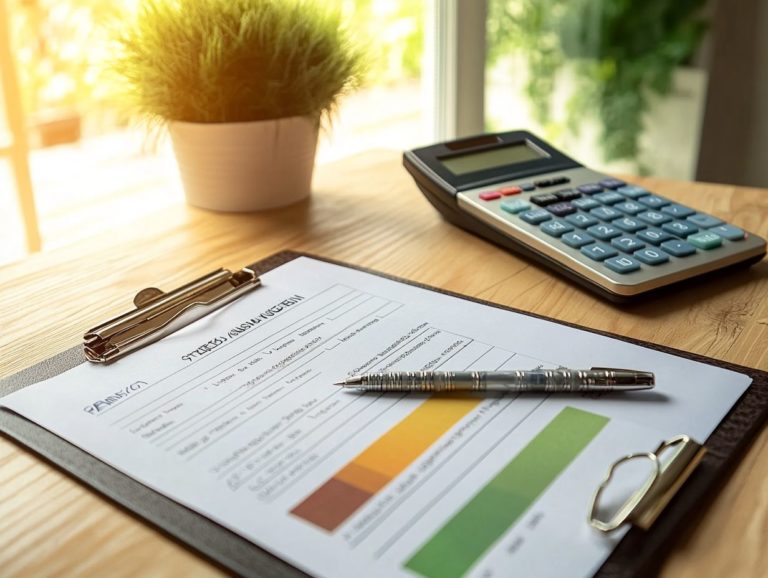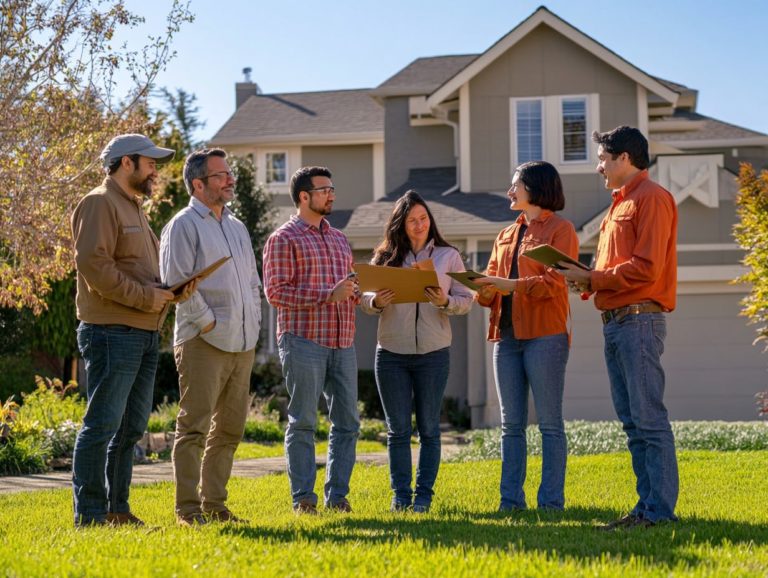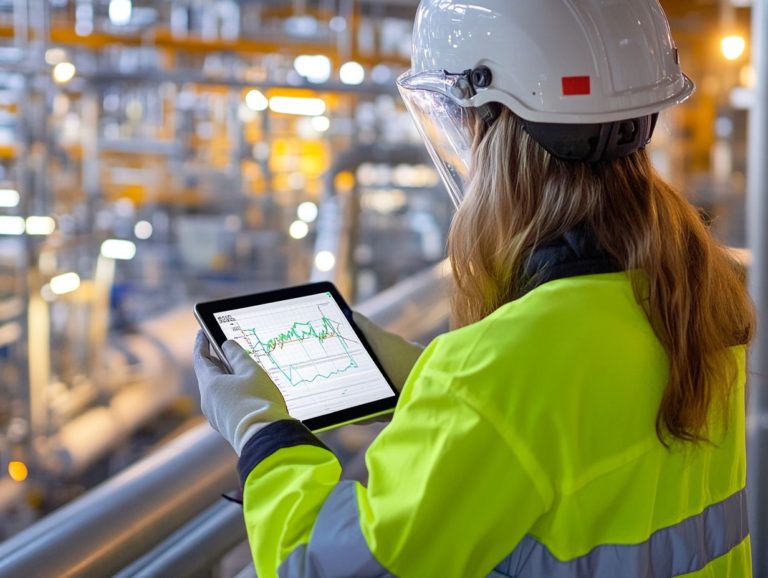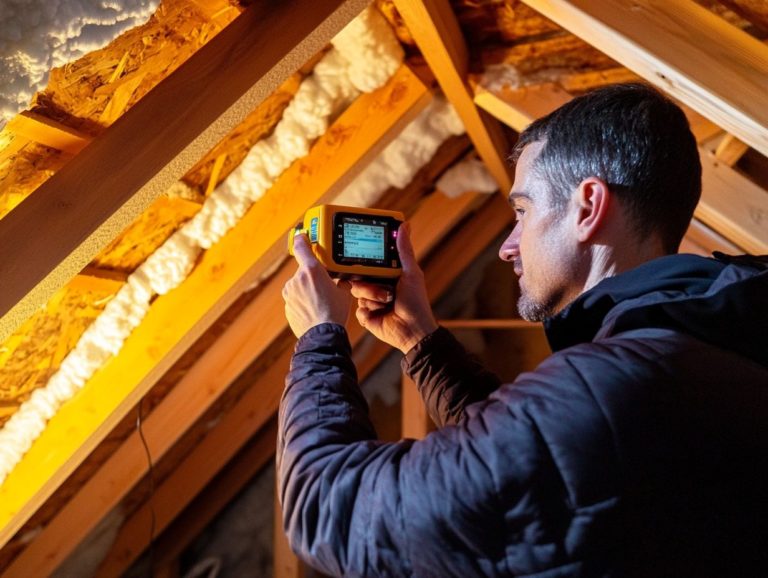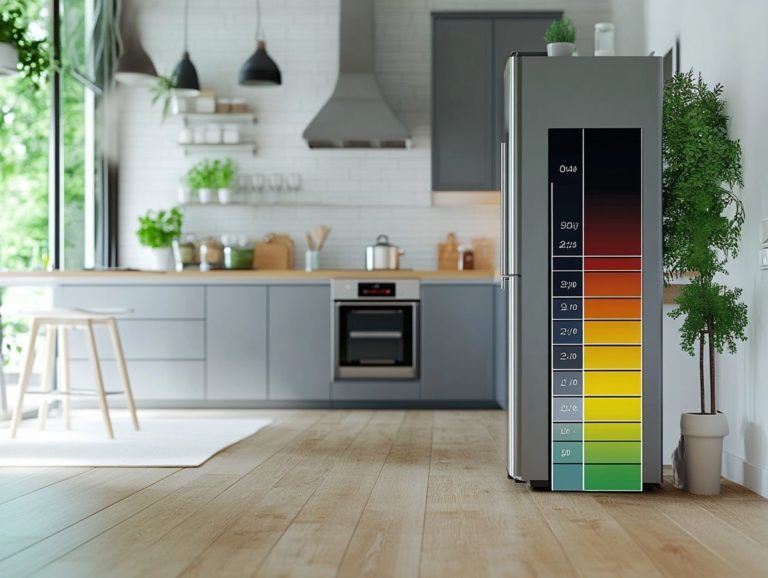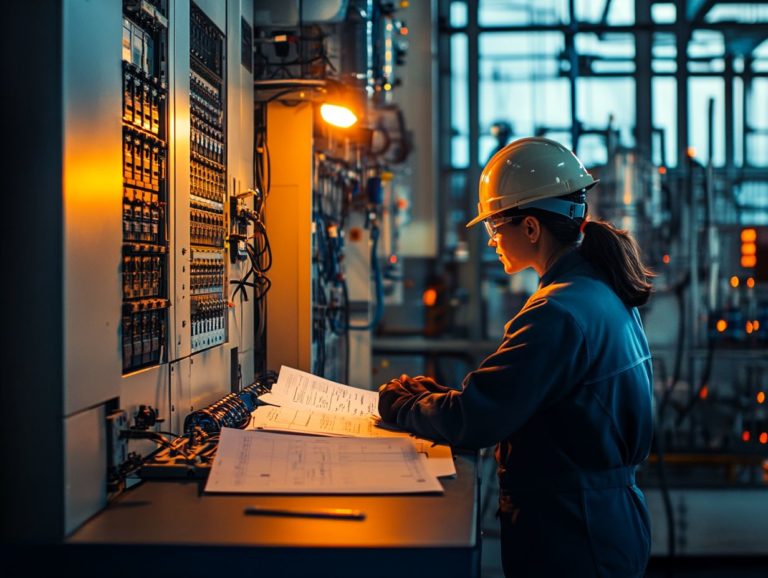How to Improve Your Home’s Energy Efficiency
Energy efficiency is not merely a trend; it s a crucial principle that can revolutionize how you utilize energy in your home.
Grasping the true meaning of energy efficiency is your first step toward unlocking its myriad benefits, ranging from substantial financial savings to a positive influence on the environment.
This article delves into common sources of energy waste, offers practical strategies for enhancing your home s efficiency, and provides tips for maintaining those improvements over time. Embrace this journey to cultivate a more sustainable and cost-effective living space.
Contents
- Key Takeaways:
- Understanding Energy Efficiency
- Benefits of Improving Home Energy Efficiency
- Identifying Areas for Improvement
- Ways to Improve Home Energy Efficiency
- Creating an Energy Efficient Home
- Frequently Asked Questions
- 1. How can I determine if my home s energy efficiency needs improvement?
- 2. What are some simple ways to improve my home s energy efficiency?
- 3. Are there any government incentives for improving my home s energy efficiency?
- 4. Can upgrading to energy-efficient appliances really make a difference?
- 5. How can I improve my home s energy efficiency during the winter?
- 6. Are there any DIY projects I can do to improve my home s energy efficiency?
Key Takeaways:
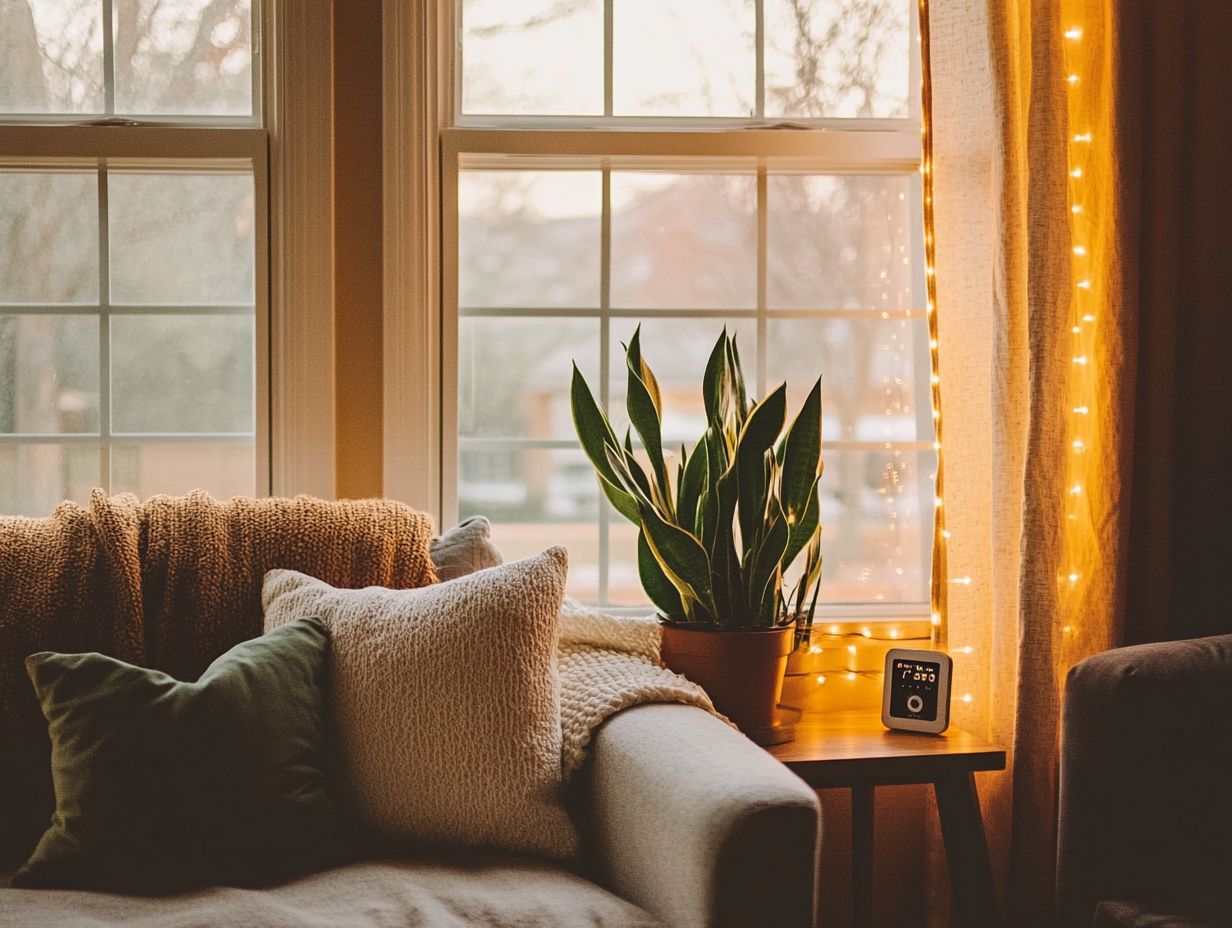
Understanding energy efficiency is key to reducing energy waste and saving money on utility bills. Improving your home’s energy efficiency benefits your wallet and positively impacts the environment. To learn more about making these upgrades, check out this guide on how to transition to energy-efficient living. Identify areas for improvement and make simple changes or investments for long-term savings and a consistently energy-efficient home.
Understanding Energy Efficiency
Understanding energy efficiency is essential for homeowners seeking to cut utility bills and elevate the comfort of their living spaces. It includes sealing air leaks, adding insulation, and upgrading to a smart energy-efficient home for even greater benefits.
By embracing these energy efficiency measures, you can significantly lower your energy costs while supporting environmentally responsible practices and minimizing greenhouse gas emissions.
A thorough energy audit can help identify ways to improve how well your home uses energy. Companies like Duke Energy offer valuable resources and solutions to guide you on this journey.
What is Energy Efficiency?
Energy efficiency is all about using less energy to achieve the same results. You can accomplish this through a variety of means, like investing in energy-efficient appliances and embracing smarter home designs.
By optimizing your energy use, you can significantly trim your energy bills while also contributing to a more sustainable environment. Energy efficiency is crucial for reducing overall energy consumption, leading to less strain on power plants and fewer greenhouse gas emissions.
When you design your home with energy-efficient features such as superior insulation and advanced heating systems, you’ll not only perform better in energy usage assessments but also gain a clearer understanding of your energy needs. To enhance your insulation, consider how to upgrade your home’s insulation system.
The long-term benefits of adopting energy-efficient practices go beyond just saving money. You can also see an increase in your property value, enhanced comfort, and a reduced environmental impact. This makes it a savvy choice for both now and in the future.
Benefits of Improving Home Energy Efficiency
Improving your home’s energy efficiency brings a wealth of advantages, from notable financial savings to a positive impact on the environment, not to mention enhanced comfort in your living spaces. For tips on how to make your home more energy efficient, consider exploring various upgrades and strategies.
By opting for energy-efficient upgrades, you ll enjoy reduced energy costs and significant energy savings over time. This makes it a smart investment for any homeowner looking to elevate their living experience.
Financial Savings
Financial savings from enhancing energy efficiency can be impressive. Homeowners often witness a significant drop in their utility bills when they embrace energy-efficient appliances and practices.
Investing in ENERGY STAR certified appliances those that meet energy efficiency guidelines set by the U.S. Environmental Protection Agency can lead to substantial decreases in electricity consumption, translating to lower monthly expenses.
Upgrading to LED lighting not only enhances the ambiance of your home but also leads to reduced energy costs over time. Many homeowners report returns on investment ranging from 20% to 50% with these smart upgrades.
In the long run, these improvements not only benefit the environment but also contribute to a healthier bank balance, enabling you to direct your savings toward other important financial aspirations.
Don’t wait! Start making these changes today to see instant benefits. Your journey toward energy efficiency starts now!
Environmental Impact
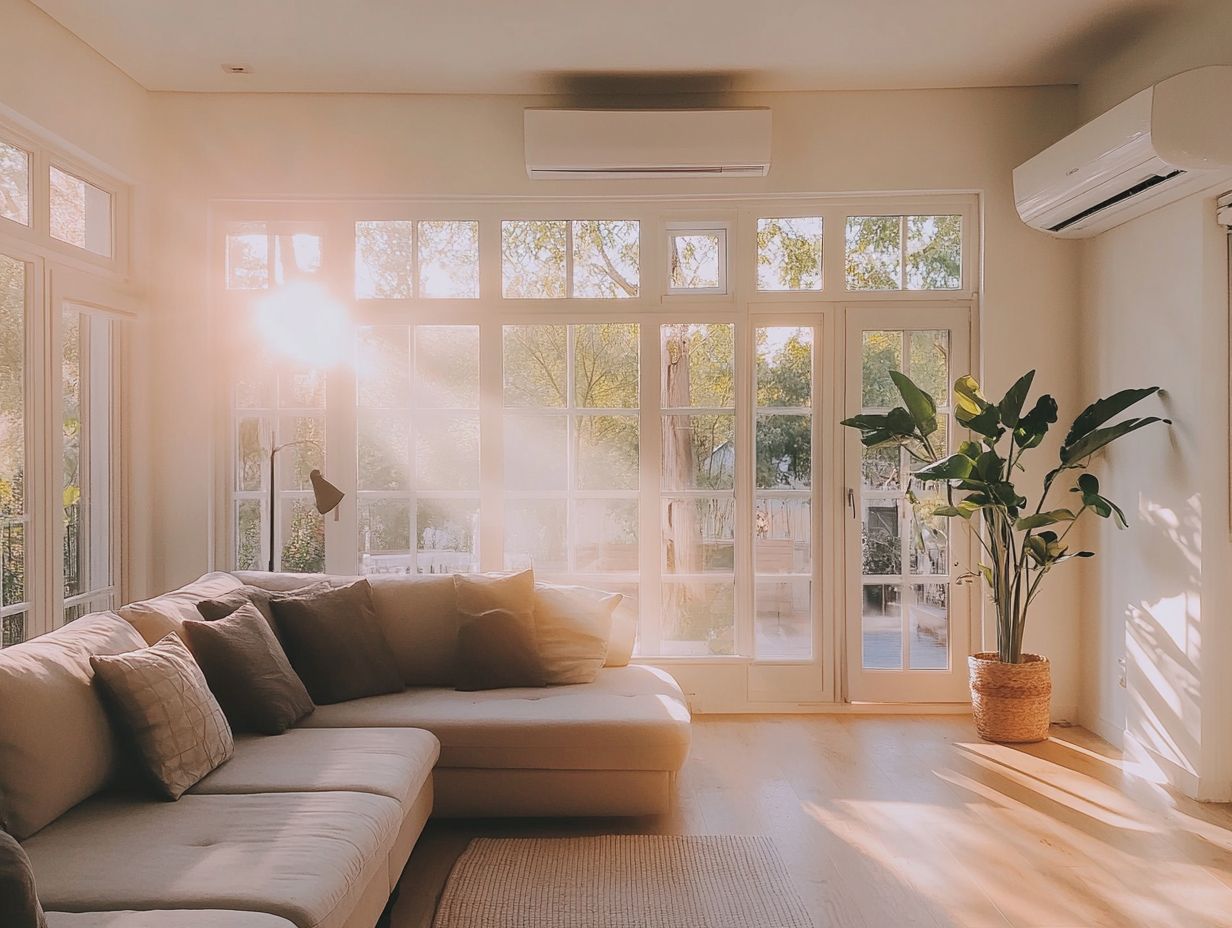
Enhancing energy efficiency has a profound environmental impact. Adopting energy-saving measures significantly reduces greenhouse gas emissions and promotes eco-friendly practices at home.
This transition benefits you directly through lower utility bills. It also plays a critical role in the fight against climate change.
Energy-efficient homes are carefully built to use less energy. This translates to fewer natural resources consumed and a smaller carbon footprint.
As you and your community embrace sustainable living practices, you contribute to preserving the planet for future generations. The broader implications illuminate a path toward resource conservation and a more resilient ecosystem.
This fosters a healthier planet and champions the cause of environmental stewardship.
Identifying Areas for Improvement
To improve energy efficiency, first pinpoint sources of energy waste in your home. Conduct a thorough energy usage assessment to tackle these problem areas effectively, and learn how to optimize your home’s energy performance.
Common Energy Wasting Problems
Common sources of energy waste in your home include air leaks, inadequate insulation, and poorly maintained heating and ventilation systems. Addressing these issues can lead to significant energy savings and enhance your overall comfort.
Air leaks, often found around windows and doors, allow heated or cooled air to escape. This results in higher utility bills. It’s advisable for homeowners to conduct a thorough inspection and seal these gaps using weatherstripping or caulking.
Inadequate insulation, especially in attics and walls, causes heat loss in winter and excess heat in summer. Improving insulation stabilizes indoor temperatures and reduces reliance on heating and cooling systems.
Regular maintenance of heating and ventilation systems is crucial. Changing filters and scheduling professional tune-ups can boost efficiency and lower energy consumption further.
Ways to Improve Home Energy Efficiency
Enhancing your home’s energy efficiency can be achieved through a range of effective strategies. By incorporating energy-saving tips into your daily routine and considering the top 10 energy efficiency improvements, you set the stage for significant long-term savings.
Simple Changes to Make
Simple changes, like upgrading to energy-efficient lighting and installing smart thermostats, can lead to remarkable improvements without extensive renovations.
By making these adjustments, you not only reduce your energy bills but also contribute to environmental sustainability.
For instance, swapping out traditional incandescent bulbs for LED lighting can reduce energy consumption by up to 75%. This translates to approximately $225 in annual savings for the average household.
Embracing smart thermostats optimizes heating and cooling schedules, potentially saving you an impressive 10-15% on your yearly energy costs.
When you pair these enhancements with proper insulation and sealing around doors and windows, you can further minimize drafts. This ensures your home remains comfortable year-round while decreasing reliance on heating and cooling systems.
Join the movement for a sustainable future! Start today by making your home energy efficient!
Investments for Long-Term Savings
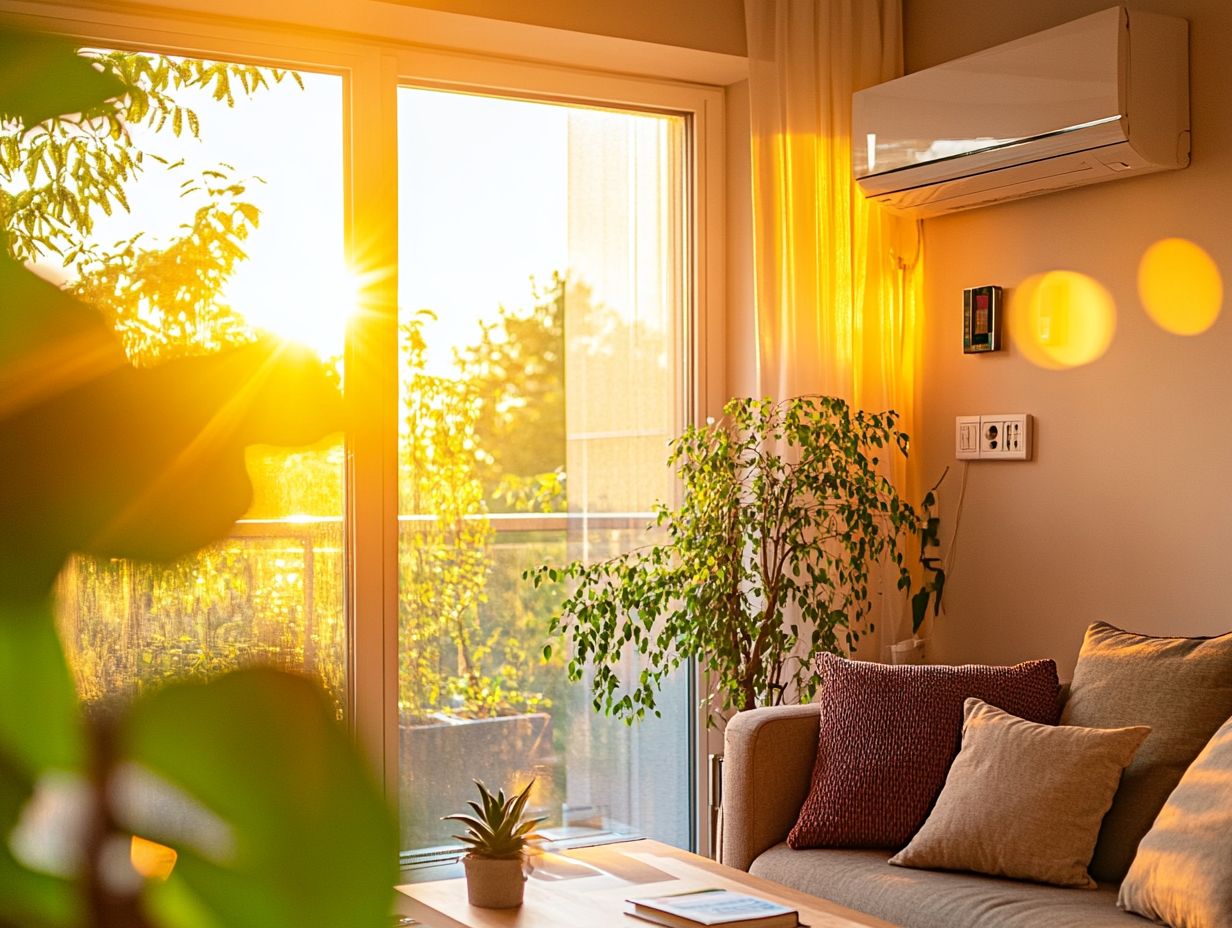
Investing in long-term energy-saving solutions can lead to big savings in the long run. This includes replacing your windows with energy-efficient ones or installing solar panels.
While these investments may require a significant upfront cost, they often result in dramatically reduced energy bills. This makes your monthly payments much more manageable over time.
You have various financing options available, such as energy-efficient mortgages, which can help ease those initial expenses by bundling them with your home loan.
Tax credits and rebates can enhance the financial appeal of these upgrades. Many homeowners lower utility costs and support environmental sustainability by investing in these improvements.
Creating an Energy Efficient Home
Creating an energy-efficient home requires regular maintenance. Keep a close eye on your home s performance for the best results!
Tips for Maintenance and Consistency
Maintaining an energy-efficient home demands attention to regular air quality improvements and updates to energy-efficient appliances. This ensures that your electronics’ energy consumption is kept in check.
Don t underestimate the importance of routine inspections for your heating and cooling systems. Scheduling professional maintenance at least once a year can help you spot potential issues before they escalate into costly repairs.
By replacing filters regularly and ensuring seals around windows and doors are intact, you can significantly reduce energy loss. Incorporating smart technology to monitor your energy usage offers valuable insights into your consumption patterns, enabling you to take proactive steps.
Regularly updating your insulation and checking for leaks can further enhance your energy savings. This ensures that the advantages of your energy-efficient systems are fully realized over time.
Frequently Asked Questions
1. How can I determine if my home s energy efficiency needs improvement?
One way to determine if your home’s energy efficiency needs improvement is by conducting a home energy audit. This involves a professional inspection of your home’s energy usage and efficiency and can help prepare your home for an energy audit, identifying areas that need improvement.
2. What are some simple ways to improve my home s energy efficiency?

There are a few simple steps you can take to improve your home’s energy efficiency. Consider replacing old light bulbs with energy-efficient ones, sealing air leaks, and regularly maintaining your HVAC system. For more guidance, check out this article on how to improve your home’s energy rating. These small changes can have a big impact on your energy usage.
3. Are there any government incentives for improving my home s energy efficiency?
Yes, various government incentives and tax credits are available for homeowners who make energy-efficient improvements to their homes. These can include rebates for installing energy-efficient appliances or insulation, as well as tax credits for purchasing renewable energy systems.
4. Can upgrading to energy-efficient appliances really make a difference?
Absolutely! Older appliances tend to be less energy-efficient and use more power than newer, energy-efficient models. By upgrading to energy-efficient appliances, you can reduce your energy usage and save money on your utility bills.
5. How can I improve my home s energy efficiency during the winter?
There are a few ways to improve your home’s energy efficiency during the colder months. These include sealing air leaks, insulating your home properly, and using a programmable thermostat to regulate the temperature. Additionally, you can explore how to make your home more eco-friendly by considering the use of a space heater in rooms that are frequently used instead of turning up the heat for the entire house.
6. Are there any DIY projects I can do to improve my home s energy efficiency?
Want to make your home more energy-efficient? Try these fun DIY projects!
You can seal gaps around doors and windows, install low-flow showerheads and faucets, and add insulation to your attic.
Always research your projects and follow safety guidelines to ensure a successful DIY experience.

